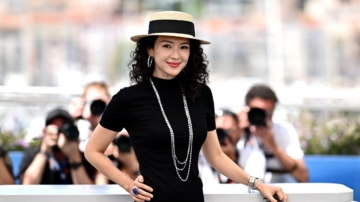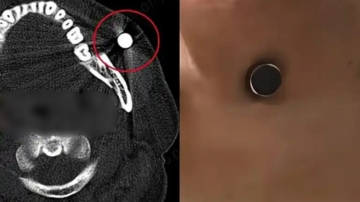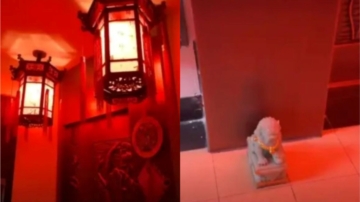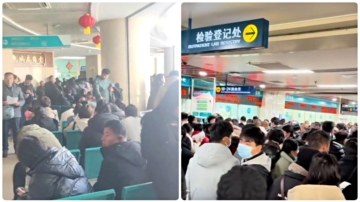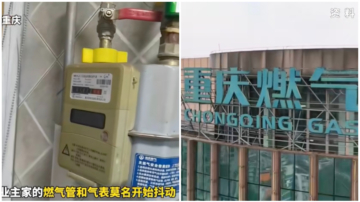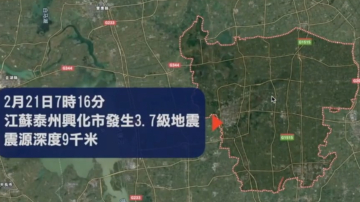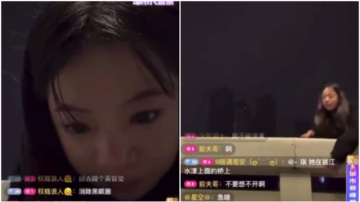【新唐人2013年09月12日訊】中共最高檢察院和最高法院週一聯合發佈司法解釋,聲稱如果網民製造誹謗性內容,並吸引至少5000個點擊量或被轉發500次,他們將面臨詆譭指控並可能被判三年監禁。這樣的司法解釋不但引發中國網民的炮轟,而且受到海內外法律界人士從法理上的質疑。有美國律師指出,兩高司法解釋非常荒唐,是當局打壓民眾,把民事化的自訴案件政治化的一種典型表現。而在美國,對於言論自由最重要的一個原則是,民眾對政府官員提出任何控告,除非是惡意,都不構成誹謗。
美國紐約執業律師李進進指出,誹謗案件實際上是民事案件的一個延伸。在美國做律師的,很少聽到誹謗有罪,他迄今還沒有碰到誹謗構成罪的情況。
紐約執業律師李進進:「誹謗罪的前提條件是自訴案件。告訴的才處理。誰告呢?在中國來講,比較明顯的他可能是政府官員,說政府官員貪污腐敗,傳播新聞,造成了對國家政府官員的影響,實際上他把民事案件,如果這樣來確定它,在這樣一個打擊網絡謠言的時候把它定下來,它是一種政治行為。」
李進進表示,兩高司法解釋的荒唐之處在於,民眾的揭發,本來是對國家政府官員進行監督的,現在變成了有可能構成犯罪。
兩高司法解釋的第二個荒唐之處在於把誹謗罪量化。《刑法》規定,情節嚴重的才構成犯罪。李進進認為,最高法院試圖通過用「吸引5000個點擊量或轉發500次」,這樣的量化來達到所謂的「情節嚴重」。
紐約執業律師李進進:「但是我們並不知道最高法院,你憑甚麼就量化轉發500次它就變成情節嚴重?根據是甚麼?501次算不算?499次算不算?500次是怎麼計算出來的?顯然是為了達到控制輿論的目的。一種威脅遏制。這是最高法院做這件事情是很荒唐的地方。」
李進進表示,在現在網絡化的情況下,一個事件轉發500次,在中國這樣一個人口眾多網絡發達的社會裡面,這是一個很普遍的事情。
第三點,也是最重要的是,李進進指出,誹謗和言論自由是永遠分不開的,言論自由不能定義為,正確的可以講,不正確的就不能講。
紐約執業律師李進進:「特別是在政治問題上,沒有正確,所有政治都沒有正確的東西。政治就是黨派,政治就是一部分人的利益。有甚麼正確呢?少數人他有發表意見的權利。真理不在哪一個人的手裡。真理是在各種不同意見的碰撞當中產生出來的。」
對於官員,美國的言論自由有一個最基本的原則,就是1964年蘇利文案件確定的原則。美國最高法院在此案中確立了,要求官員或公眾人物在指控媒體報導涉嫌誹謗或侵害名譽時,必須遵循的真實惡意原則。該案是保障新聞自由的關鍵判決。
紐約執業律師李進進:「這是美國言論自由一個最基本的概念。你現在意圖通過你國家權力,打擊你的對手,保護你的官員,那最高法院就是和這個惡勢力,和反動勢力,同流合污。」
李進進上世紀70年代曾在中共部隊服役以及任職公安。1978年考入中南政法學院,1987年入北京大學攻讀博士學位。1989年中共前領導人胡耀邦逝世,他是最早出來參與組織天安門廣場靜坐,以及提出七條要求的學生代表之一。「六四」後被捕,1991年4月獲釋。1993年1月以訪問學者身份到美國。1998年在威斯康辛大學獲得法學博士學位。現為紐約執業律師。
採訪編輯/秦雪 後制/李勇
US Lawyer Critiques China's Judicial Interpretation for Online Posts
Recently, China's supreme court and top procuratorate
jointly issued an interpretation on new measures.
It claims that internet users can face charges,
or a jail sentence, if their online posts are read
5,000 times, or if they are reposted 500 times.
This judicial interpretation has caused
widespread debate amongst netizens.
It has also questioned by legal
professionals inside and outside China.
US lawyers have highlighted that
the interpretation is very absurd.
It is deemed a typical example of authorities suppressing
civilians, and using politicized private prosecution.
In the US, an important principle of freedom of speech
is that people will not be charged with defamation if
they report on any official, except if it is "actual malice".
New York lawyer Li Jinjin said that
defamation is an extension of civil law.
It is rare to see someone was charged with defamation.
Li is not also aware of anyone who
has been sentenced for defamation.
Li Jinjin: "Private prosecution
is a prerequisite for defamation.
It can be handled only upon complaint.
Who is the prosecutor? In China, it is
obvious that the prosecutors are officials.
People are likely to have reported
information on a corrupt government official.
This results in an impact on the Chinese regime's officials.
Actually, in China, the authorities made it as civil cases,
at the time of campaign to suppress online rumors.
This is a political act."
Li Jinjin said that the important point about this is
that people's complaints should be a good thing.
It helps a country supervise it's government officials.
However, now people can face defamation charges.
The judicial interpretation states that an internet
user could face defamation charges if his post
reaches a defined quota of views or re-posts.
Criminal Law stipulates this is if the circumstances
are serious enough, a crime is committed.
Li Jinjin believes that the supreme court intends
to use 5,000 views or 500 reposts to achieve
the status of "serious circumstances".
Li Jinjin: "I can't understand how the supreme court
classified 500 reposts as a "serious circumstance"?
What is this according to? If it has
499 or 501 reposts, does it count?
Where does 500 come from?
The outcome seems to be aiming to achieve
the purpose of controlling public opinion.
This is a threat, and is suppression.
The supreme court's act is ridiculous."
Li Jinjin said that now is the internet era, and it
is easy for an event to be reposted 500 times.
China has a large population, and
social networks are very developed.
This is a very common issue.
Li Jinjin said the most important point is that defamation
and freedom of speech can never be separated in China.
Freedom of speech doesn't mean that if something
is correct according to a regime, you are allowed
to say it, and if it is not correct, you cannot say it.
Li Jinjin: "This is especially on political issues.
There is no clear concept for what the right thing is.
Politics is partisan, and a group of people's interests.
Only a minority have rights to express their opinion.
The truth is not determined by any one person,
as it is created from different opinions."
There is a fundamental principle of freedom
of speech in the US, based on the case of
The New York Times v. Sullivan in 1964.
The US Supreme Court established an
"actual malice" standard from this case.
This standard has to be met before a press report about
public officials or public figures be considered defamation.
Hence, this has allowed free reporting on
civil rights campaigns, and is one of the
key decisions supporting freedom of press.
Li Jinjin: "This is fundamental concept
of freedom of the press in the US.
If the Chinese regime uses state power against
critics and to protect its officials, then the
supreme court is complicit with this evil force."
Li Jinjin was a policeman, and
served in army in the 1970s in China.
Li studied in Zhongnan University of Economics and Law
in 1978, then studied in Peking University for PhD in 1978.
He participated in the Tiananmen Square
students sit-in protest in 1989, when former
communist leader Hu Yaobang died.
He was one of students' representative who
raised seven requirements to the regime leader.
After the incident, he was arrested,
and released in April in 1991.
Li traveled to US study in 1993.
He earned his law degree in 1998 at the University of
Wisconsin, and currently serves as a lawyer in New York.
美國紐約執業律師李進進指出,誹謗案件實際上是民事案件的一個延伸。在美國做律師的,很少聽到誹謗有罪,他迄今還沒有碰到誹謗構成罪的情況。
紐約執業律師李進進:「誹謗罪的前提條件是自訴案件。告訴的才處理。誰告呢?在中國來講,比較明顯的他可能是政府官員,說政府官員貪污腐敗,傳播新聞,造成了對國家政府官員的影響,實際上他把民事案件,如果這樣來確定它,在這樣一個打擊網絡謠言的時候把它定下來,它是一種政治行為。」
李進進表示,兩高司法解釋的荒唐之處在於,民眾的揭發,本來是對國家政府官員進行監督的,現在變成了有可能構成犯罪。
兩高司法解釋的第二個荒唐之處在於把誹謗罪量化。《刑法》規定,情節嚴重的才構成犯罪。李進進認為,最高法院試圖通過用「吸引5000個點擊量或轉發500次」,這樣的量化來達到所謂的「情節嚴重」。
紐約執業律師李進進:「但是我們並不知道最高法院,你憑甚麼就量化轉發500次它就變成情節嚴重?根據是甚麼?501次算不算?499次算不算?500次是怎麼計算出來的?顯然是為了達到控制輿論的目的。一種威脅遏制。這是最高法院做這件事情是很荒唐的地方。」
李進進表示,在現在網絡化的情況下,一個事件轉發500次,在中國這樣一個人口眾多網絡發達的社會裡面,這是一個很普遍的事情。
第三點,也是最重要的是,李進進指出,誹謗和言論自由是永遠分不開的,言論自由不能定義為,正確的可以講,不正確的就不能講。
紐約執業律師李進進:「特別是在政治問題上,沒有正確,所有政治都沒有正確的東西。政治就是黨派,政治就是一部分人的利益。有甚麼正確呢?少數人他有發表意見的權利。真理不在哪一個人的手裡。真理是在各種不同意見的碰撞當中產生出來的。」
對於官員,美國的言論自由有一個最基本的原則,就是1964年蘇利文案件確定的原則。美國最高法院在此案中確立了,要求官員或公眾人物在指控媒體報導涉嫌誹謗或侵害名譽時,必須遵循的真實惡意原則。該案是保障新聞自由的關鍵判決。
紐約執業律師李進進:「這是美國言論自由一個最基本的概念。你現在意圖通過你國家權力,打擊你的對手,保護你的官員,那最高法院就是和這個惡勢力,和反動勢力,同流合污。」
李進進上世紀70年代曾在中共部隊服役以及任職公安。1978年考入中南政法學院,1987年入北京大學攻讀博士學位。1989年中共前領導人胡耀邦逝世,他是最早出來參與組織天安門廣場靜坐,以及提出七條要求的學生代表之一。「六四」後被捕,1991年4月獲釋。1993年1月以訪問學者身份到美國。1998年在威斯康辛大學獲得法學博士學位。現為紐約執業律師。
採訪編輯/秦雪 後制/李勇
US Lawyer Critiques China's Judicial Interpretation for Online Posts
Recently, China's supreme court and top procuratorate
jointly issued an interpretation on new measures.
It claims that internet users can face charges,
or a jail sentence, if their online posts are read
5,000 times, or if they are reposted 500 times.
This judicial interpretation has caused
widespread debate amongst netizens.
It has also questioned by legal
professionals inside and outside China.
US lawyers have highlighted that
the interpretation is very absurd.
It is deemed a typical example of authorities suppressing
civilians, and using politicized private prosecution.
In the US, an important principle of freedom of speech
is that people will not be charged with defamation if
they report on any official, except if it is "actual malice".
New York lawyer Li Jinjin said that
defamation is an extension of civil law.
It is rare to see someone was charged with defamation.
Li is not also aware of anyone who
has been sentenced for defamation.
Li Jinjin: "Private prosecution
is a prerequisite for defamation.
It can be handled only upon complaint.
Who is the prosecutor? In China, it is
obvious that the prosecutors are officials.
People are likely to have reported
information on a corrupt government official.
This results in an impact on the Chinese regime's officials.
Actually, in China, the authorities made it as civil cases,
at the time of campaign to suppress online rumors.
This is a political act."
Li Jinjin said that the important point about this is
that people's complaints should be a good thing.
It helps a country supervise it's government officials.
However, now people can face defamation charges.
The judicial interpretation states that an internet
user could face defamation charges if his post
reaches a defined quota of views or re-posts.
Criminal Law stipulates this is if the circumstances
are serious enough, a crime is committed.
Li Jinjin believes that the supreme court intends
to use 5,000 views or 500 reposts to achieve
the status of "serious circumstances".
Li Jinjin: "I can't understand how the supreme court
classified 500 reposts as a "serious circumstance"?
What is this according to? If it has
499 or 501 reposts, does it count?
Where does 500 come from?
The outcome seems to be aiming to achieve
the purpose of controlling public opinion.
This is a threat, and is suppression.
The supreme court's act is ridiculous."
Li Jinjin said that now is the internet era, and it
is easy for an event to be reposted 500 times.
China has a large population, and
social networks are very developed.
This is a very common issue.
Li Jinjin said the most important point is that defamation
and freedom of speech can never be separated in China.
Freedom of speech doesn't mean that if something
is correct according to a regime, you are allowed
to say it, and if it is not correct, you cannot say it.
Li Jinjin: "This is especially on political issues.
There is no clear concept for what the right thing is.
Politics is partisan, and a group of people's interests.
Only a minority have rights to express their opinion.
The truth is not determined by any one person,
as it is created from different opinions."
There is a fundamental principle of freedom
of speech in the US, based on the case of
The New York Times v. Sullivan in 1964.
The US Supreme Court established an
"actual malice" standard from this case.
This standard has to be met before a press report about
public officials or public figures be considered defamation.
Hence, this has allowed free reporting on
civil rights campaigns, and is one of the
key decisions supporting freedom of press.
Li Jinjin: "This is fundamental concept
of freedom of the press in the US.
If the Chinese regime uses state power against
critics and to protect its officials, then the
supreme court is complicit with this evil force."
Li Jinjin was a policeman, and
served in army in the 1970s in China.
Li studied in Zhongnan University of Economics and Law
in 1978, then studied in Peking University for PhD in 1978.
He participated in the Tiananmen Square
students sit-in protest in 1989, when former
communist leader Hu Yaobang died.
He was one of students' representative who
raised seven requirements to the regime leader.
After the incident, he was arrested,
and released in April in 1991.
Li traveled to US study in 1993.
He earned his law degree in 1998 at the University of
Wisconsin, and currently serves as a lawyer in New York.


